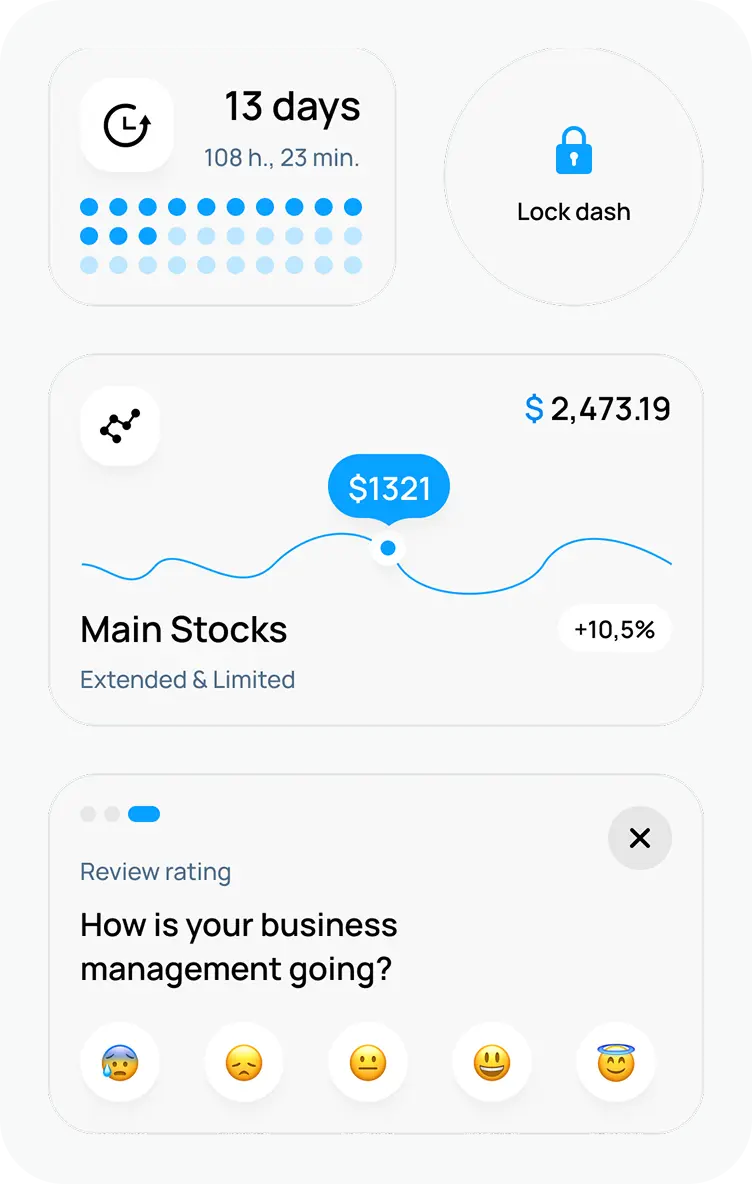React to Angular: 5 Arguments to Migration
November 10, 2024•3 min read

I hope you enjoy reading this post. If you want us to do your frontend development or design, click here.
Author: Alex Vasylenko | Founder of The Frontend Company


Moving from React to Angular may seem crazy at first, considering React's worldwide popularity and large talent pool. But Angular has its own unique advantages and benefits that surpass React in some use cases.
In the article Angular to React: 5 Reasons to Migrate, I explored why React might be the right fit for some businesses and project types.
And today, I want to show the reverse scenario. Let's look at 5 reasons to switch from React to Angular and why it might fit your needs perfectly.
Indispensable for Large and Structured Projects
Convert React to Angular is great for businesses with large-scale applications where you need a complex structure and consistency. With Angular, developers can handle multiple pages, data-heavy tables, and dashboards that are common in industries like finance, healthcare, and enterprise software.
While React has more flexibility, which is great for mid-sized projects, Angular's structure shines when the application needs to be robust and highly organized.
Error Minimization
The creative freedom of React is a big plus, but it often leads to more human errors. Without a structure, React projects can suffer from bugs and miscommunication among developers, especially as teams grow or projects scale. Over time, these issues can make the codebase harder to maintain and increase technical debt and the time to add new features or updates.
On the other hand, Angular's strict architecture ensures that every team member follows the same rules, reducing confusion and promoting a single way of development. In general, Angular is an environment where mistakes are minimal.
Technically Stronger Community
Mastering Angular requires understanding complex concepts like TypeScript, RxJS, and strict architectural patterns. While this makes it harder for beginners to get started, it also means that developers who master Angular have high-level technical skills.
React is simpler, flexible, and accessible to a broader audience, but that accessibility doesn't always mean deep technical expertise. So, the average Angular developer is more experienced in managing enterprise-level projects, where a solid understanding of architecture, scalability, and long-term maintainability is key.
While a larger React community means breadth, Angular's community often offers depth, providing specialized knowledge and experience that's critical for more complex applications.
Everyday Improvement by Google
Angular has come a long way since its early days as AngularJS, launched in 2010 and served developers for almost 6 years before Angular (often called "Angular 2+") was introduced in 2016. Over the years, Google has fixed many issues and requests from the community and has made Angular a much more powerful and efficient tool.
It guarantees that the framework will stay relevant and evolve, making it a safe choice for businesses that value stability and continuous improvement in their tech stack.
Out-of-the-Box Solutions
Unlike React, which requires a mix of third-party libraries for routing, state management, and form handling, Angular provides everything developers need right out of the box.
For example, teams might use React Router for navigation, Redux or Zustand for state management, and Formik for form handling — all great tools, but each has its own setup and update requirements.
Angular is entirely different and takes an all-in-one approach. Within the framework, you have a set of built-in features, including routing, HTTP services, dependency injection, and form handling.
Conclusion
Choosing between React and Angular is like choosing the right car for the trip. React is a sporty car – flexible, adaptable, and easy to customize, making it an excellent choice for smaller to mid-sized projects where flexibility is key.
Angular is an SUV designed for durability, structure, and performance off-road – perfect for large applications in industries that demand consistency and long-term stability, like finance or healthcare.

Both frameworks have their strengths and weaknesses, but it’s not always easy to decide which one fits your business goals and technical requirements. That’s where we can help.
At The Frontend Company, we specialize in Angular to React or React to Angular migrations. Contact us for a free consultation, and we will help you build a scalable and reliable project that matches your vision.

Unlock the full potential of your product

Boost customer retention & satisfaction

Become more competitive on the market

Move to the latest technologies stacks

Improve usability & visual appeal
FAQ

Alex Vasylenko is the founder of The Frontend Company, DBC and several other successful startups. A dynamic tech entrepreneur, he began his career as a frontend developer at Deloitte and Scandinavia's largest banking company. In 2023, Alex was honored as one of 'Top 10 Emerging Entrepreneurs' by USA Today.
RATE
Rate this article please
This will help us provide more useful information.
1673 ratings, average 4.97 out of 5
